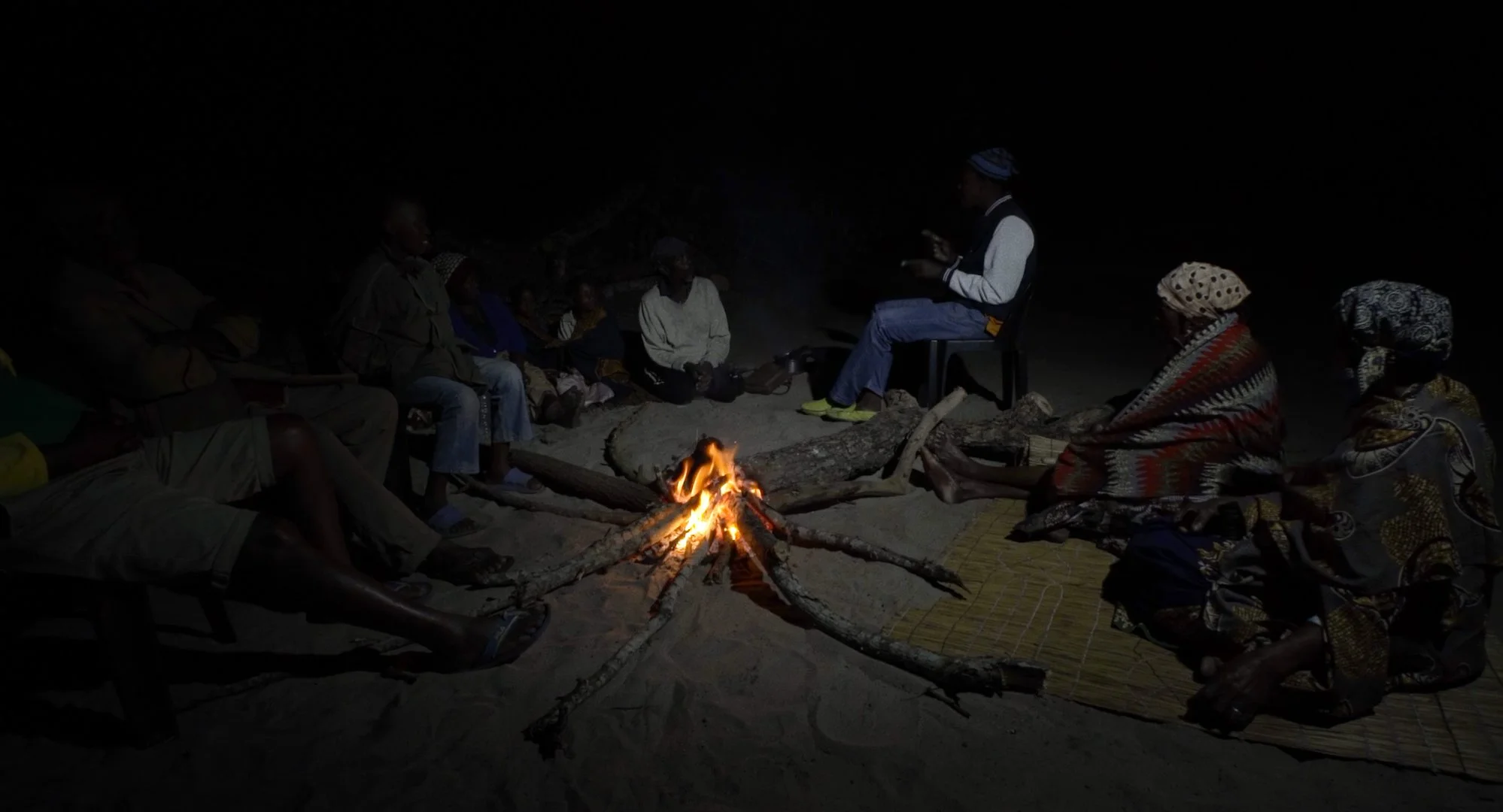Unravelling memories of the Mozambican Civil War
Doc Weekly is covering this year’s BFI London Film Festival with reviews and interviews from some of our favourite documentaries. As Noites Ainda Cheiram a Pólvora, or The Nights Still Smell of Gunpowder, by Inadelso Cossa will be screening in London on the 17th and 18th of October after it first premiered at this year’s Berlinale.
Over 30 years after the end of the Mozambican civil war, Inadelso Cossa returns to his grandmother’s village to record untold stories of the conflict.
In The Nights Still Smell of Gunpowder, the filmmaker grants us a very personal perspective on the war’s aftermath. We are taken into the village, the garden, the home of his grandmother to hear her recount her experiences during the civil war. As the audience, we are only privy to snippets, but they are harrowing nonetheless.
We also hear from other people in the village, including an ex-rebel, Macuacua, and his partner, Zalina. Through these two people, Cossa successfully conveys the ongoing struggle survivors face today, the tug-of-war between the desire to move on and constantly being raked backwards by omnipresent and unforgettable horrors. Macuacua is dogged by his experience as a rebel, with this surfacing frequently and sometimes violently in the film. Conversely, Zalina is charmingly optimistic and forgiving - “You can’t blame anyone, they were conscripted”. As an audience, we yo-yo between these two states of mind. Spliced between the villagers’ accounts are shots of children today, contently playing and bathing in the same landscape that was ravaged by war. While this breaks up the pace, it is effective in challenging the viewer to reconcile the present-day stillness with ghosts of the past.
To convey the weight of this haunting history the film relies on sound, either through nighttime recordings of wildlife, people singing, or often a complete, palpable silence. This is made obvious in scenes where we see the sound guy wandering the village, boom in hand. Perhaps in homage to the gravitas this documentary deserves, and compounding this tension is the fact that a lot of the film is shot at night, with the subject illuminated by a single spotlight.
Although referred to as the Mozambican Civil War, fought between the marxist Mozambique Liberation Front (FRELIMO), led by the the central government, and the anti-communist insurgents Mozambican National Resistance (RENAMO), the conflict was in essence a proxy war between the Soviet Union and the US who supported FRELIMO and RENAMO respectively. Mozambique became another arena for the Cold War after it gained independence from Portugal in 1975, with both sides being propped up by foreign arms and support. A peace accord was struck in 1992, which lasted until RENAMO launched an insurgency in 2014, triggered by disputed election results. The ensuing violence lasted until as recently as the signature of the Maputo Accord in 2019 and the engagement of the Disarmament, Demobilisation and Reintegration (DDR) process.
The path towards peace since 2019 has not always been smooth, but the DDR process was completed in 2023 and the country is optimistic about a united future. Despite this positive outcome, it is impossible to gloss over the fact that peace has taken nearly 50 years since the start of the war, with one million Mozambicans dying in the conflict up to 1992 out of a population of 14 million (1990). Five million people were displaced across the country, and rural infrastructure was razed, with both sides responsible for human rights abuses, planting of mines across the country and the conscription and use of child soldiers.
Inadelso Cossa provides invaluable human scale to a conflict that was executed by foreign powers far removed from the scars that it left behind. He gives a voice to the people who fought in the war and those who have suffered its consequences. By introducing silence and giving it a presence in his film, he also gives a voice to those who are no longer with us.
The Nights Still Smell of Gunpowder is currently touring major documentary film festivals, including IDFA where it has been selected in Best of Fests.









